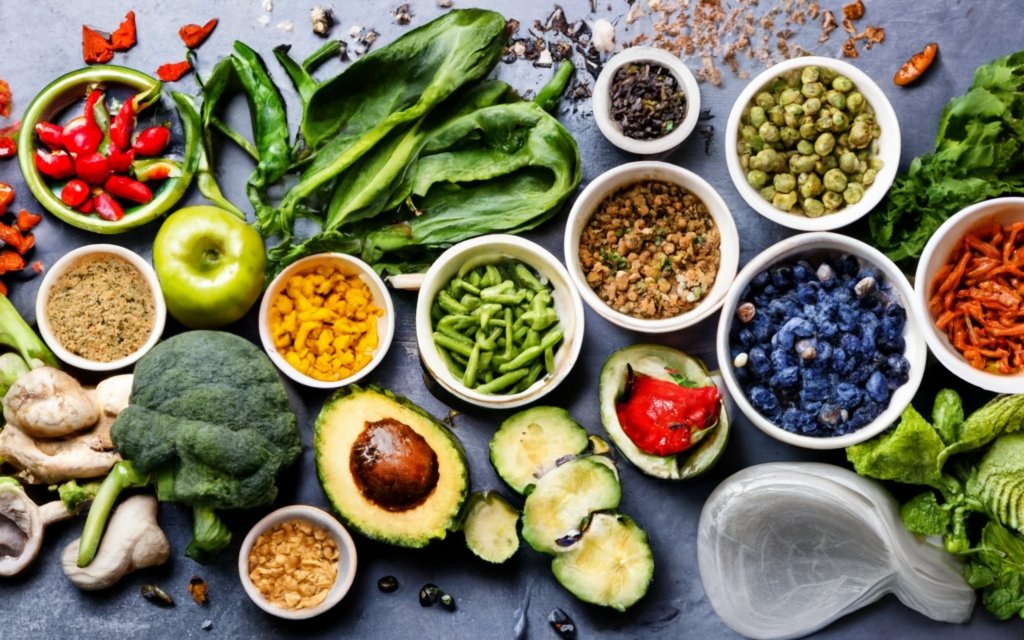Veganism’s Journey from Niche Choice to Global Norm

In an era marked by rapid global change and heightened awareness of sustainability, the culinary world finds itself amidst a transformative shift. Veganism, once viewed as a niche lifestyle choice, has burgeoned into a mainstream phenomenon, challenging long-standing culinary traditions and reshaping industries from the ground up.
The Economic Landscape
The rise of veganism is not merely a dietary trend—it’s an economic revolution that’s reshaping the contours of global markets. In 2023, India emerged as a frontrunner in the vegan market, capturing a share of 13%. Following closely were China and the US at 6% and 4%, respectively. These figures, more than just numbers on a page, represent a significant shift in consumer behavior that’s sending ripples through the global economy.
Traditional meat and dairy industries once deemed the bedrock of global food consumption, now find themselves grappling with an uncertain and shifting future. The global plant-based meat market, for instance, is on an upward trajectory, projected to touch a staggering USD 24.80 billion by 2030. This growth is not merely indicative of changing consumer preferences but also showcases the adaptability, innovation, and resilience of emerging businesses in the face of evolving demands.
Dr. Ellen Carter, a renowned industry expert and food economist, observes, “The food industry is undergoing a metamorphosis. Startups and new entrants are not just challenging but often outpacing established giants, signaling a changing of the guard.” However, an anonymous expert from the traditional meat industry offers a counter-narrative, suggesting, “While plant-based alternatives are gaining traction, they still represent a small fraction of the broader market. The challenge will be in sustaining this momentum.”
Societal Shifts and Changing Values
The ascent of veganism is more than just a reflection of changing dietary habits; it mirrors broader societal values and evolving global consciousness. A significant 68% of vegans champion animal welfare as their primary motivation, signaling a shift that encompasses ethics, health consciousness, and a burgeoning awareness of the environmental repercussions of our choices.
Millennials, in particular, are at the vanguard of this movement. With 16% having embraced strict veganism, they’re not just making dietary choices; they’re championing a cause, advocating for a more sustainable and compassionate world. The UK, with its rich culinary traditions, has witnessed a 400% surge in its vegan populace between 2006 and 2018, underscoring the global resonance of this shift.
Dr. Carter elaborates, “Veganism, in many ways, transcends diet. It epitomizes a broader shift in societal paradigms, where ethics, sustainability, and conscientious choices are becoming central to consumer behavior.” The societal implications also extend to health. With increasing research pointing to the myriad health benefits of a plant-based diet, including reduced risks of heart disease, diabetes, and certain cancers, many are turning to veganism as a proactive health choice. This health-driven shift is further bolstered by the global fitness and wellness movement, where diet plays a pivotal role in overall well-being.
The Environmental Imperative
Environmental discussions tied to veganism go beyond the oft-discussed realms of carbon emissions and deforestation. Research from the University of Oxford posits that global veganism could curtail greenhouse gas emissions from farming by a staggering 66%. This reduction is more than a statistic; it’s a clarion call for the future of our planet.
A vegan world could herald a 76% reduction in agricultural land use, signaling a profound shift in land management practices. This shift has far-reaching implications for water conservation, biodiversity, and the potential for regenerative agriculture. The environmental benefits also encompass a reduction in water usage, given that livestock farming is notoriously water-intensive. With global water scarcity becoming a pressing concern, the shift to veganism could play a pivotal role in sustainable water management.
Dr. Carter reflects, “The trajectory of veganism isn’t confined to food. It’s a narrative about the future of our planet, our economy, and our societal ethos. It’s a journey that, while challenging, holds the promise of a more sustainable, equitable, and compassionate world.”
The Path Forward
In conclusion, as the world stands at the crossroads of dietary choices and their broader implications, the rise of veganism offers a beacon of hope. It’s a testament to humanity’s ability to evolve, adapt, and make choices that not only benefit individual health but also the health of our planet and its myriad inhabitants. The journey of veganism is not just a story of food; it’s a narrative of hope, change, and a vision for a better, more sustainable future.